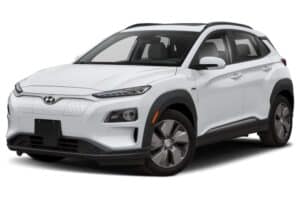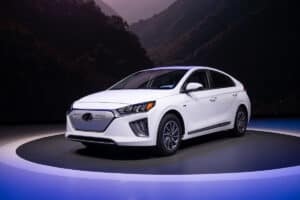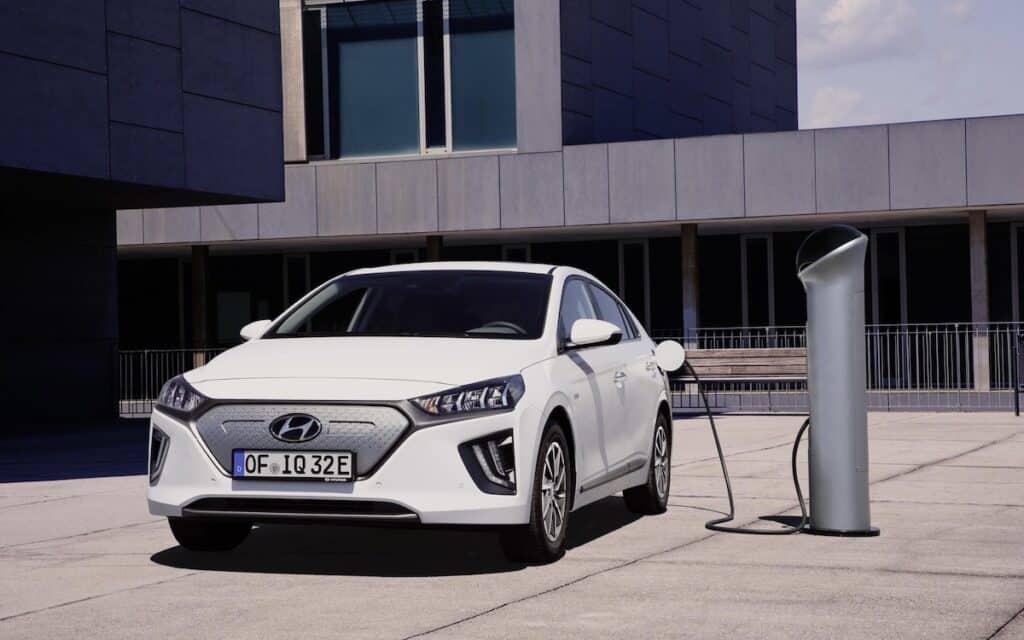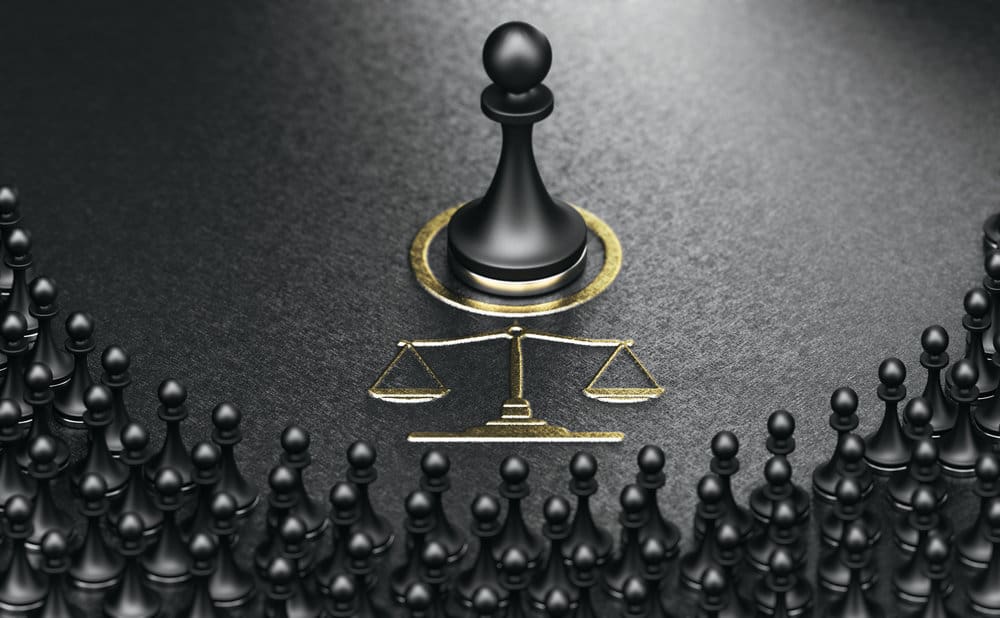Current or former owners and lessees of the Hyundai 2019-2021 Kona EV or 2020 Ioniq EV vehicles need to pay close attention to their legal rights.
According to class action complaints filed against Hyundai Motors America, the 2019-2021 Kona EV and 2020 Ioniq EV vehicles are equipped with defective battery systems.
The complaints allege the lithium-ion batteries and related management systems of the affected vehicles are unsafe in that they fail to prevent thermal runaway and spontaneous ignition of the batteries in the affected vehicles (the battery defect).
The complaints allege that Hyundai continues to sell these electric vehicles in the United States despite safety concerns that arose from a series of fires plaguing the same cars in South Korea and subsequent recalls relating to the battery defect.
The complaints also allege Hyundai has overstated the travel range of the lithium-ion batteries in the affected vehicles in that the cars can only cover their advertised ranges if the batteries are charged to “a dangerous degree.”
When overcharged, lithium-ion batteries pose a fire risk to the extent some drivers have been advised to park their electric vehicles outdoors and away from structures.
According to the complaints, in October 2020, Hyundai voluntarily recalled approximately 6,700 Kona vehicles. Hyundai claimed a small percentage of these vehicles could have a “high voltage battery system” with “certain electrical deficiencies” that had the potential to cause a fire.
In March 2021, Hyundai expanded that recall to include specific 2019-2020 Kona EVs and 2020 Ioniq EV sedans the company said may also be at risk for battery fires.
The complaints also allege that Hyundai reprogrammed the batteries in its Kona and Ioniq EV vehicles to 90 percent of their promised capacities as part of these recalls.
Fill out the form below for a free lemon law consultation, or call us at 1-855-678-6881.
Following Hyundai’s reduction of the cars’ battery capacities as part of its U.S. recall over the fire risk, these vehicles have materially less range than advertised and labeled on their Monroney vehicle stickers, thereby decreasing their travel ranges to significantly lower than what drivers were promised.
 The complaints allege Hyundai either knew or should have known that the battery ranges for its electric Kona and Ioniq vehicles were falsely misrepresented yet continued to tell the public that the cars could meet their stated driving ranges.
The complaints allege Hyundai either knew or should have known that the battery ranges for its electric Kona and Ioniq vehicles were falsely misrepresented yet continued to tell the public that the cars could meet their stated driving ranges.
Current or former owners of the affected vehicles should know that California’s lemon law and other state and federal laws may force Hyundai to repurchase the car or provide further meaningful compensation for those experiencing the battery defect.
Under California’s lemon law, qualifying “lemons” must be bought back, which can mean a large cash refund and payoff of your loan or lease.
This could be as much as everything you paid for the vehicle and everything you owe: monthly payments, down payments, tax, finance charges, license and registration, and other charges. Depending on the circumstances, owners could even qualify for two times their money back.
What Hyundai would have to buy it for has nothing to do with its current worth. There is a formula in the law that starts with you getting all your money back and then taking certain deductions and exclusions away from your payment. Those refunds and exclusions are challenging to understand and can be fought against by knowledgeable consumer lemon law attorneys.
Hyundai automobiles with the alleged battery defect include the 2019-2021 Kona EV and the 2020 Ioniq EV electric vehicles.
Your Legal Options as Vehicle Owners and Leasees
What to do can be a complicated decision, as it can depend on many factors. These factors include:
- How old is your car?
- Has the battery defect occurred in your car?
- Have you taken it in for repairs on more than one occasion?
- Do you still own the car?
- Is the vehicle still under warranty?
- Where do you live?
We are available to help you sort through these questions and make an informed decision. Fill out the form below for a free lemon law consultation, or call us at 1-855-678-6881.
Hyundai Defective EV Battery FAQs
Have any class action lawsuits been filed over these battery defects?
Friche v. Hyundai Motor Co., et al. (CDCA Case No. 8:21-cv-01324-CJC-ADS)
The Friche case was filed in the United States District Court for the Central District of California on August 9, 2021. In October 2021, the plaintiffs filed an Amended Complaint. On December 3, 2021, Hyundai filed a Motion to Dismiss the Complaint, which the Court granted in part and denied in part on January 28, 2022. The Court issued a scheduling order setting both pre-trial and trial dates, leading up to a class certification motion to be heard by the Court no later than May 29, 2023, and a trial beginning on March 5, 2024.
Kermani v. Hyundai Motor America (LASC Case No. 21-ST-CV-24017)
The Kermani case was filed in Los Angeles County Superior Court on June 29, 2021. In August 2021, Hyundai filed a Motion to Compel Arbitration of all claims asserted in that Complaint, which the court denied in November 2021. Hyundai has filed a Notice of Appeal, and that case is stayed until the conclusion of Hyundai’s appeal.
What are the Hyundai vehicle models affected by the battery defect?
The model year 2019-2021 Hyundai Kona EV and 2020 Hyundai Ioniq EV electric vehicles.
How many electric vehicles are impacted by this defect?
According to publicly available data, the total number of affected vehicles sold is approximately 250,000.
What is the nature of the battery defect?
The complaints allege the lithium-ion batteries and related management systems of the affected vehicles are defective and unsafe in that they fail to prevent thermal runaway and spontaneous ignition of the batteries in the affected vehicles.
The complaints also allege Hyundai has overstated the travel range of the lithium-ion batteries in the affected vehicles in that the cars can only cover their advertised ranges if the batteries are charged to “a dangerous degree.” When overcharged, lithium-ion batteries can pose a fire risk to the extent that some drivers have been advised to park their electric vehicles outdoors and away from structures.
How does the battery defect violate the affected vehicle warranty?
 The complaints allege the affected vehicles were sold to plaintiffs with express warranties that the cars would be free from defects in materials, nonconformities, or workmanship during the applicable warranty period, and to the extent the affected vehicles had defects, Hyundai would repair the defects within a reasonable number of attempts.
The complaints allege the affected vehicles were sold to plaintiffs with express warranties that the cars would be free from defects in materials, nonconformities, or workmanship during the applicable warranty period, and to the extent the affected vehicles had defects, Hyundai would repair the defects within a reasonable number of attempts.
The affected vehicles are covered by Hyundai’s new car limited warranty, including its 5-year/60,000-mile New Vehicle Limited Warranty, its 10-Year/100,000-Mile Powertrain Limited Warranty, and its lifetime electric battery warranty.
Hyundai also represents that if the “lithium-ion polymer battery fails, Hyundai will replace the battery and cover recycling costs for the old battery free of charge to the original owner.”
Fill out the form below for a free lemon law consultation, or call us at 1-855-678-6881.
The class action complaints allege the affected vehicles were also sold to plaintiffs with implied warranties that:
- the affected vehicles would be of the same quality as similar vehicles sold in the trade (similar vehicles being electric vehicles that are functional and can be fully and safely charged to obtain the presented vehicle range)
- the affected vehicles would be fit for the ordinary purposes for which similar vehicles are used (similar vehicles being electric vehicles that are functional and can be fully and safely charged) and
- the affected vehicles would measure up to the promises and facts stated in their labeling (that they would be functional and that owners would be able to fully and safely charge the affected vehicles to obtain the represented charging range).
What is the Song Beverly Warranty Act?
The Song-Beverly Warranty Act, California Civil Code §1793.2(d)(1), is a California state law that requires manufacturers to repair defects after a reasonable number of repair attempts. Here are some key parts of this law
- What is “reasonable” is not part of hard and fast rules – safety defects should be fixed immediately, for example.
- The defects have to be important and must “substantially impair the vehicle’s use, value, OR safety.” Civil Code §1793.22(e)(2).
- Under Civil Code §1793.2(d)(1), manufacturers must promptly offer repurchase or replacement of the vehicle they cannot fix in a reasonable time frame.
- Civil Code §1794(c) and §1793.2(d) provide customers are entitled to a civil penalty in an amount up to two times actual damages if manufacturers acted “willfully” (meaning knowingly, but not necessarily with wrongful or malicious intent) in ignoring or failing its obligation under the Song-Beverly Act.
- Under Civil Code §1794(d), manufacturers must pay the plaintiff’s attorney’s fees and costs as part of the settlement, as the Song-Beverly Act is a pro-consumer fee-shifting statute.
What Relief Could I Get If I Bring an Individual Lawsuit Over the Battery Defect?
Current or former owners should be aware that California’s lemon law and other comparable state and federal laws may force Hyundai to “buy the vehicle back” or provide other important compensation.
 Under California’s lemon law, qualifying “lemons” must be bought back, which can mean a large cash refund and payoff of your loan or lease. The refund could be as much as everything you paid for the vehicle and everything you owe: monthly payments, down payments, tax, finance charges, license, registration, etc. Depending on the circumstances, you could even qualify for 2x your money back.
Under California’s lemon law, qualifying “lemons” must be bought back, which can mean a large cash refund and payoff of your loan or lease. The refund could be as much as everything you paid for the vehicle and everything you owe: monthly payments, down payments, tax, finance charges, license, registration, etc. Depending on the circumstances, you could even qualify for 2x your money back.
What Hyundai would have to buy it for has nothing to do with its current worth. There is a formula in the law that starts with you getting all your money back and then taking certain deductions and exclusions away from your payment. Those refunds and exclusions are challenging to understand and can be fought against by knowledgeable lemon law attorneys.
Contact a consumer lemon law lawyer for advice as to your options. Fill out the form below for a free lemon law consultation, or call us at 1-855-678-6881.
May I have additional rights if I am an Armed Forces member?
Under Cal. Civil Code 1795.8, if a person is a member of the Armed Forces, the protections of the Song Beverly Act may apply, even if you purchased your vehicle outside of California, so long as the manufacturer sells cars in California. The Armed Forces member would need to show they were stationed in or a resident of California at the time they purchased the vehicle or at the time they filed a claim against the manufacturer.
Have consumers been offered anything to resolve the battery defect?
According to the complaints, in October 2020, Hyundai voluntarily recalled approximately 6,700 Kona vehicles.
Hyundai claimed a small percentage of these vehicles could have a “high voltage battery system” with “certain electrical deficiencies” that had the potential to cause a fire.
In March 2021, Hyundai expanded that recall to include specific 2019-2020 Kona EVs and 2020 Ioniq EV sedans the company said may also be at risk for battery fires.
The complaints allege that as part of these recalls, Hyundai reprogrammed the batteries in its Kona and Ioniq EV vehicles to 90 percent of their promised capacities, thereby decreasing their travel ranges to lower than what drivers were promised and, in some situations, materially worse.
Hyundai either “knew or should have known” that the battery ranges for its electric Kona and Ioniq vehicles were falsely misrepresented, yet continued to tell the public that the cars could meet their stated driving ranges.
The complaint filed in the Friche action further alleges that the measures taken by Hyundai to reduce the fire risk may not have resulted in a complete fix, alleging that a Kona vehicle fire that occurred in July 2021 was in a vehicle that already underwent the recommended reprogramming and raising questions about whether the reprogramming fix was a fix at all.
Is there anything I need to do at this time?
If you decide to bring your own claim, you can do so now and opt out when you receive notice of any settlement of the class actions. Or the class will be defined as those people who have not filed lawsuits or settled their claims, and you will be automatically opted out of the class action settlement.
If there is a settlement of the class action lawsuits, in general, you will be bound by its terms if you do not opt-out of the settlement. You will receive any benefits offered in the settlement, either automatically or by submitting a claim form. However, you may not be able to bring any individual claim for damages caused by the denial of a warranty claim, except possibly for personal injury claims.
Fill out the form below for a free lemon law consultation, or call us at 1-855-678-6881.
Individual Lemon Law Claim vs. Class Action
 For many people, a class action can provide them significant benefits without the need to spend any money or do much other than complete a claim form. And if the matter is settled, as long as the court approves the settlement, you will get the relief described in the notice.
For many people, a class action can provide them significant benefits without the need to spend any money or do much other than complete a claim form. And if the matter is settled, as long as the court approves the settlement, you will get the relief described in the notice.
However, it may be years before these actions are settled. There is no trial date for two years, there are no announced settlement negotiations at this time, and the parties do not have to participate in mediation until sometime later next year. Even if they do settle the cases, you may decide that the relief offered as part of a class action settlement is inadequate, that you do not want to wait to get the offered relief, or you think you will get more if you do not participate in the class action settlement.
This depends on a variety of factors, such as how old is your car, can you document the defect that occurred in your car, have you taken it in for repairs on more than one occasion, do you still own the vehicle, is it still under warranty and where do you live.
Depending on the answers to those questions, while there is no guarantee you will receive any recovery, if you opt-out, you may have the opportunity to receive significant relief, including a vehicle repurchase and penalties.
Free Lemon Law Consultation
There is a lot to consider in deciding whether to pursue an individual lemon law claim.
The Hanson Law Firm is available to help you sort through these questions and make an informed decision.
Confidential • No cost • No obligation










